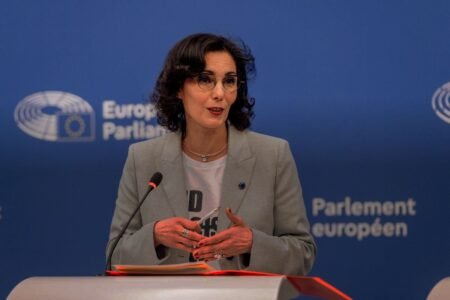The European Commission set out on 8 March various initiatives it is engaged in in support of women’s rights and gender equality.
Advertisement
What are the priorities of the Commission in terms of gender equality?
The Commission’s work on gender equality policy is based on the “Strategic engagement for gender equality 2016-2019″, which focuses on five priority areas:
- increasing female labour-market participation and the equal economic independence of women and men;
- reducing the gender pay, earnings and pension gaps and thus fighting poverty among women;
- promoting equality between women and men in decision-making;
- combating gender-based violence and protecting and supporting victims; and
- promoting gender equality and women’s rights across the world.
In 2017 the European Commission concentrated its efforts on three main areas:
- Reducing the gender pay gap: the Commission presented a concrete Action plan to reduce the gender pay gap by 2019. The Action plan includes, amongst others, a call by the Commission to the European Parliament and the Member States to swiftly adopt the work-life balance proposal of April 2017. It also calls on governments and social partners to adopt concrete measures to improve gender balance in decision-making.
- Violence against women: 2017 was dedicated as to Ending Violence against Women with the No Non Nein campaign. The Commission dedicated 15 million funding to NGO working in this field. The Commission extended the funding to 2018. The 2017 Annual Fundamental Rights Colloquium was dedicated to Women’s Rights in Turbulent Times, addressed violence and harassment against women in our societies as well as the economic and political inequality between women and men, particularly focusing on the gender pay gap and on work-life balance.
The European Commission has also initiated a strategy that will focus on women’s participation specifically in the digital sector to address the new challenges that the digital future brings. The strategy will look into three main areas: breaking negative stereotypes, skills and education as well as women’s participation in the entrepreneurial scene of the digital sector. These focus areas are based on the upcoming study (to be published on 08/03), whose findings reiterate the issue that not only are there less women participating in the digital sector but also that this number is decreasing.
What are the key findings of the 2018 Commission’s Report on equality between women and men?
- Employment of women: it continued to increase slowly but steadily and reached 66.6 % in the third quarter of 2017 (78.1% for men). Despite this progress, women are not achieving full economic independence. According to a recent survey, in comparison to men, women still tend to be employed less, are employed in lower-paid sectors, work on average 6 hours longer per week than men, but have fewer paid hours, take more career breaks, and face fewer and slower promotions.
- Gender pay gap: women still earn on average 16 % less per hour than men in the EU. The gap varies greatly from one Member State to another. .
- Women on boards: women account for just a quarter ofboard members in the largest publicly listed companies registered in EU Member States. France is the only Member State in which there was over 40 % of women on boards.
- Women in politics: the situation is varies greatly. National parliaments in Sweden, Finland and Spain had at least 40 % of women each gender, while in six countries (Croatia, Cyprus, Greece, Latvia, Malta and Hungary) women accounted for less than 20 % of members. Similarly, governments had a as many women as men in France, Germany, Slovenia and Sweden; while women were completely absent from the Hungarian government.
- Violence against women: remains a problem. According to the EIGE ‘Gender Equality Index 2017, when it comes to the measurement of violence against women’, on a scale of 1 to 100, the EU’s score is 27.5 out of 100. The score varies between countries, ranging from 22.1 in Poland to 44.2 in Bulgaria.
What is the EU doing to help women remain in the labour market?
The European Pillar of Social Rights establishes that equality of treatment and opportunities between women and men must be ensured in fostered in all areas, including regarding participation in the labour market, terms and conditions of employment and career progression. To put these words into action, the European Commission adopted a comprehensive package of policy and legal measures to improve the Work-life balance for working parents and careers in April 2017. The proposed directive aims at establishing an EU-wide right to paternity leave and strengthens the existing right to parental leave. Fathers would be able to take at least 10 working days of paternity leave around the time of birth of the child, compensated at least at the level of sick pay. Also, 4 months of parental leave would be compensated at least at sick pay level and be non-transferable from one parent to the other. Parents would have the right to request to take leave in a flexible way (part-time or in a piecemeal way) and the age of the child up to which parents can take leave would be increased from 8 to 12 years.
The Commission’s proposal further introduces leave for workers caring for seriously ill or dependent relatives, who would be able to take 5 days off per year, compensated at least at sick pay level.
Finally, the proposal sets rights to request more flexible working arrangements for all working parents of children up to 12 and carers with dependent relatives, not only in terms of time (flexible and/or reduced working hours) but also in terms of place of work (teleworking).
The initiative also includes 10 non-legislative measures, which will support Member States in the enforcement of existing discrimination and dismissal protection legislation, encourage a gender-balanced use of family-related leaves and flexible working arrangements, ensure better use of European funds to improve long-term and childcare services and remove economic disincentives for second earners which prevent women from accessing the labour market or working full-time.
Source: European Commission







